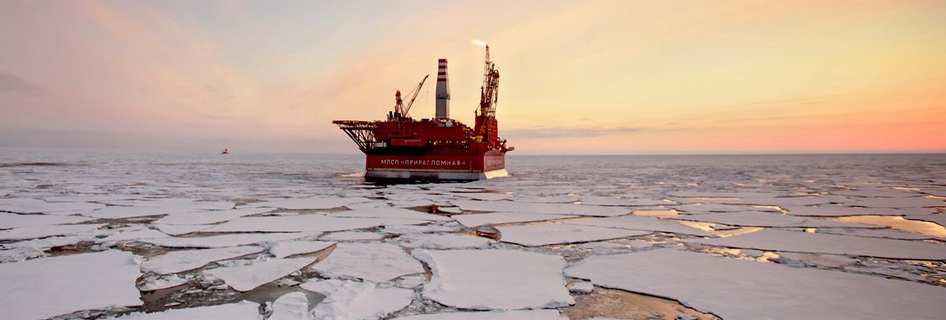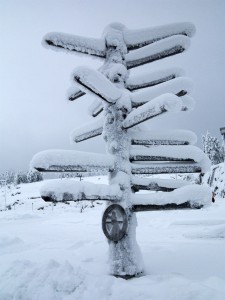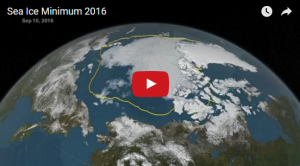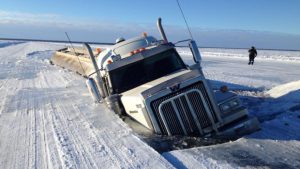
Please share your thoughts and join the conversation on social media follow the hashtag: #truevalueARCTIC
I have always been there for you
I am the Arctic, I am about 6% of this planet’s surface. I am home to around four million people and I have watched indigenous peoples grow up here for thousands of years. I provide fish, especially in the sub-polar Bering and Barents seas. I provide soils for reindeer herding. My great Siberian rivers flow into the Arctic Ocean and provide fresh water. I provide income from tourists visiting my incomparable landscapes, dog-sledding and ice fishing. I provide inspiration for culture, peace and serenity. Some worship me for my vast landscapes.
Do we have a problem?
I am heating up at about two to three times the average rate of our planet. Before 2050, sea ice will melt away from my ocean every early autumn and my coastlines will be left vulnerable to storm surges. I am suffering from the destruction of habitat important for reindeer herding and for key Arctic species such as seals and polar bears. I also have a key role in several planetary boundaries that are being crossed, such as those relating to climate change, biosphere integrity, land system change and ocean acidification. At the same time, your interest in me is ever-expanding. With my ice cap receding and your technologies improving, I am the solution to satisfy your future strategic oil, gas and mineral needs. I already account for 10% of global oil production and 25% of global natural gas production. You want to access my opening Northwest Passage and especially my Northern Sea Route with your impressive tankers, cruise liners and refrigerated vessels carrying fish. While some say that commercial fishing in my territories is important for global food security, the rest of the world sees me as nothing more than a tool for growth in terms of Gross Domestic Product (GDP). But am I not more than just GDP?
Do you think you are better off without me?
You are privatizing my oil, gas and mineral resources. But would you make the same economic decisions if you incorporated the real value of my ecosystem services that may be degraded as a consequence? Do you know what it really costs to replace some of my services provided for free? And what about the risk of losing some of my irreplaceable services, such as climate regulation? What will happen when I can no longer serve as the air conditioner of the world? This sounds like skating on thin ice.
And my fish? I provide habitat for fish that are caught for local subsistence as well as for food security across the world. Some commercial fisheries treat me as a free lunch. The total landed value of marine species may not represent a critical share of GDP for either of the countries on my territory, but it is a fundamental share in the revenue of the coastal communities and subsistence fishermen. For example, by-catch of king salmon in the Bering sea endangers the basic livelihood of the Yupic fishermen on the Yukon river. I fear for their right to food, their freedom of choice and other fundamental dimensions of human well-being.
How can we work this out?
There is an impressive amount of cooperation on my territory, both at the science and the policy level. But often you and I do not speak the same language and your economic decision-making threatens my well-being. I am sure there exist multiple pathways to work this out, but we have to go beyond making an incremental or patchy redesign of our relationship. What would this change of mindset look like?
1. Value me, but bear in mind that I am priceless
The economic invisibility of my public goods – ice cap, oceans, air, land – has led to ecosystem degradation. This in turn has negative impacts on your livelihoods and well-being. A myriad of tools and frameworks can be used to take into account not only the GDP wealth but also my undervalued ecosystem services or the welfare losses for local inhabitants along my coastlines that are induced by climate change.
Let us set some ground rules to address some of my concerns about economic valuation of the goods and services I provide. First, economic valuation is not a licence to treat me as a commodity. To put it very simply, value is not a price. My ice cap and water do not have a price tag but they are more valuable than my oil reserves. The cultural and social value of traditional seal hunting to the approximately 400.000 Indigenous Peoples cannot be compensated in markets and prices. Second, the way you perceive my value is largely dictated by socio-cultural values, norms and beliefs. Different interpretations of ´value´ will exist, none of which should be perceived as either incorrect or invalid. Third, determine my value based on what I am– irrespective of my current or future use by humans. I have basic nature rights that need to be recognized but could never be fully incorporated in your calculations of economic value.
2. Invest in our relationship: you need me for your well-being
I am likely to attract substantial investment over the coming decade, potentially reaching $100 billion or more, with decisions taken in boardrooms far removed from those who depend on my ecosystems for their wellbeing. Please reallocate your capital towards manufacturing and sectors that respect the public goods I provide. You are already exploring local renewable energy sources, but these need to be scaled-up through investments. Develop further the networks of Marine Protected Areas for sustainable fisheries.
At the same time, invest in your human capabilities and strengthen your institutions to implement a long-term vision for a fair sharing of my natural resources while recognizing the limitations of markets in protecting natural resources. The Arctic Council –an intergovernmental forum with sustainable development as a central principle to its founding mandate– has the potential to address science-policy gaps. Furthermore, as the only international forum where indigenous peoples sit at the same table as states, it has above all the ability to overcome the frontier mentality of your nations.
3. Shape your production and consumption patterns as engaged citizens
A shift in your production and consumption patterns is central to reducing the constraints on my natural resources. Do not expose yourself to outdated and unsustainable consumer norms, based primarily on short-term material self-interest. Rather, shed your light on the rise of engaged citizen innovation, even within the private sector. Consumers and employees have the power to push companies beyond quarterly financial reports, while embracing a circular and sharing economy. Businesses, on the other hand, can reorient their customer preference from ‘a consumer of a simple product’ to ‘a participant in a cause’ wanting to lead a sustainable and low-carbon lifestyle. Through policy reforms that influence choices of consumers (eg. eco-labelling) and producers (eg. corporate taxation), you can help build up the momentum.
4. Strive for inclusive outcomes in line with my long-term health
I am becoming a symbol of the Anthropocene era, where humans are the species that will determine my future. You have the tremendous responsibility to define the life of future generations:
First, do not wait for perfect information to act and call upon complementary approaches such as ´safe minimum standards´ and the ´precautionary principle´. For example, I am increasingly releasing stored carbon as permafrost thaws, amplifying changes and moving my system away from its equilibrium state. My rich fish stocks may rapidly decline due to interactions among several forces and cumulative impacts. Once this floor or ceiling is reached, I will change the rules of the game, whether or not you like it, and whether you have prepared for it or not.
Second, use my natural resources to sustain your livelihoods, but do not treat me as a remote storehouse of resources. Seek not just more jobs, but also more productive jobs that are decent and that use my ecosystems sustainably. This requires a policy shift from short-term (job-poor) GDP growth based on non-renewable resource extraction towards long-term job creation through renewable sources. A great example is the use of mini grid renewable energy systems to give access to clean energy to underserved populations in my remote regions. Equally important, do not steer away from labour intensive jobs in agriculture and fisheries, which existed long before the word ‘green job’ was coined. These jobs require investment in climate-resilient infrastructure and productivity.
We are no polar opposites!
 Please do not limit your economic discourse to GDP growth and financial profits – this is just the tip of the iceberg of your well-being. We have been able to overcome problems in the past, for example the ozone hole. Can you imagine the number of skin cancer victims if ozone-depleting chemicals had not been banned in the 1980s and the ozone hole were 40% larger?
Please do not limit your economic discourse to GDP growth and financial profits – this is just the tip of the iceberg of your well-being. We have been able to overcome problems in the past, for example the ozone hole. Can you imagine the number of skin cancer victims if ozone-depleting chemicals had not been banned in the 1980s and the ozone hole were 40% larger?
Stop holding back the tide of solutions and let us create a common future! Together we can find a new economic approach, one in which my values are fully reflected in public and private decision-making, one of increased investments in my productive capacity, and one of a broadened focus from short-term stability to long-term resilience.
With love,
The Arctic

By Tomas Declercq, Consultant UNITAR / UNEP TEEB Office
tomas.declercq@unep.org
___________________________________________________________________
This blog entry has been written in light of the recent EU Communication on the future “Integrated EU Policy for the Arctic” which includes a strong biodiversity focus. Last year, a TEEB Arctic pre-scoping study has been developed under the lead of the Arctic Council.
Integrated EU policy for the Arctic
TEEB welcomes the European joint communication [1] by the High Representative and the Commission on the future “Integrated EU Policy for the Arctic”, supported by the Council of the EU “Conclusions on the Arctic” on the 20th of June 2016. [2]
The EU Strategy includes a strong biodiversity focus with a view to achieving the global biodiversity 2020 targets, and most specifically to “promote establishing marine protected areas in the Arctic, these areas being an important element in the effort to preserve biodiversity.” This may be a concrete policy entry point for a TEEB Assessment, taking into account best practices and learned lessons from previous TEEB cases (e.g. UK Marine Bill).
TEEB Arctic Scoping Study
A TEEB for the Arctic Scoping Study[3] was developed under the lead of the Arctic Council’s working group CAFF (Conservation of Arctic Flora and Fauna), providing general information and discussion on Arctic ecosystem services, policy context and governance aspects. As such it represents a first important step towards further policy refining, appropriate scoping and boundary setting for a full TEEB for the Arctic study.
___________________________________________________________________


